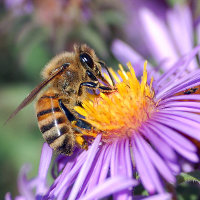Plants of the World Online (POWO)
A database of plant names and taxonomy, with global scope.
Website: https://powo.science.kew.org/
POWO is a global, collaborative website of plant names and related information, maintained by the Royal Botanical Gardens in Kew, London. POWO uses the World Checklist of Vascular Plants (WCVP) as its taxonomic backbone which in turn uses the International Plant Name Index (IPNI) as its nomenclatural backbone. The IPNI is a collaboration of The Royal Botanic Gardens at Kew, The Harvard University Herbaria, and The Australian National Herbarium.
Although no source is perfect, POWO/IPNI often have the most up-to-date taxonomic backbone of any plant website or database, reflecting newer information and reclassifications, and most closely matching the current scientific consensus, whereas other sources tend to lag behind in their updates. Although we do not always defer to POWO/IPNI, when there is a disagreement we use their scheme more often than not.
The core features in POWO focus on plant taxonomy, including a section on recognized subspecies or varieties, and a comprehensive list of synonyms. This aspect of the site is the most consistently complete and highest-quality aspect of the site. It is also interlinked with IPNI in a way that can makes it easy to access the original works where a particular name was published.
For all accepted names, POWO also has plant distribution information and maps following the international TDWG standard, the World Geographical Scheme for Recording Plant Distributions (WGSRPD). Although the scale of scheme is much coarser than that provided by USDA PLANTS, BONAP, and our range maps, it is global in scope and as such often is one of the best and most comprehensive resources for researching plants globally. Within the US, the information on plant ranges and establishment means (native vs. introduced) provided by POWO generally follows the Flora of North America (FNA) accounts, and thus reflects both strengths and limitations of FNA's data; see our page on FNA for a full description.
POWO has images of about 60% of all plants, with some photographs of live plants and some of specimens from the Kew herbarium. POWO also presents other information including IUCN threat categories for all species, and descriptions from digitized publications from Kew and its partners which mainly focus on tropical Africa, Colombia and Brazil.
POWO provides a reference list on each article under the "Publications" tab, separated into headings. Especially useful in the case of taxa that have been split, merged, and/or renamed, one subheading lists references for the accepted name and taxonomy, and when competing schemes are found in the relatively recent literature (especially from 2003 onward), there is a section of references to alternate taxonomies. References on distribution information and evidence for the status of plants as native or introduced in particular regions can be found under the heading "Kew Backbone Distributions".


